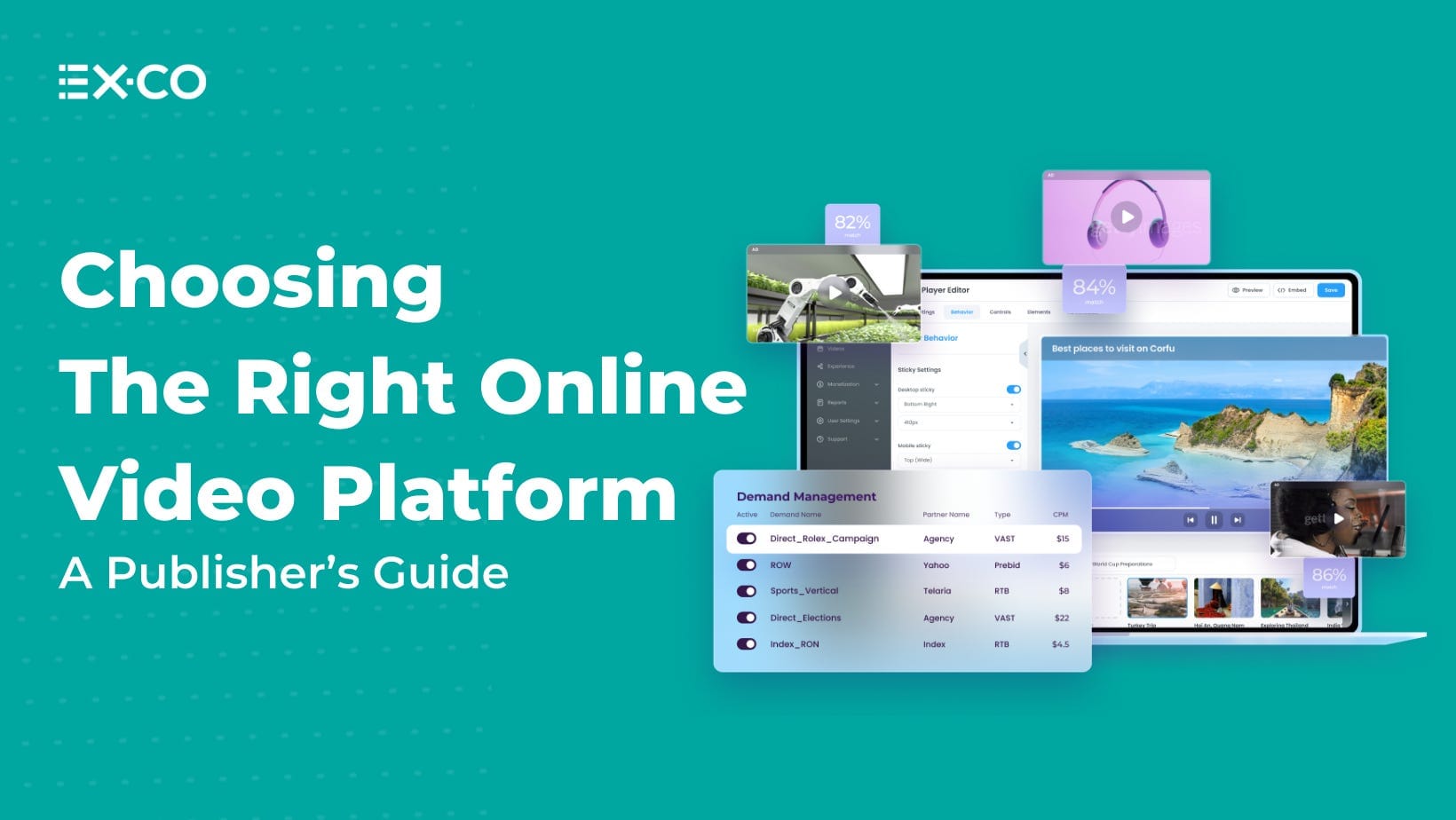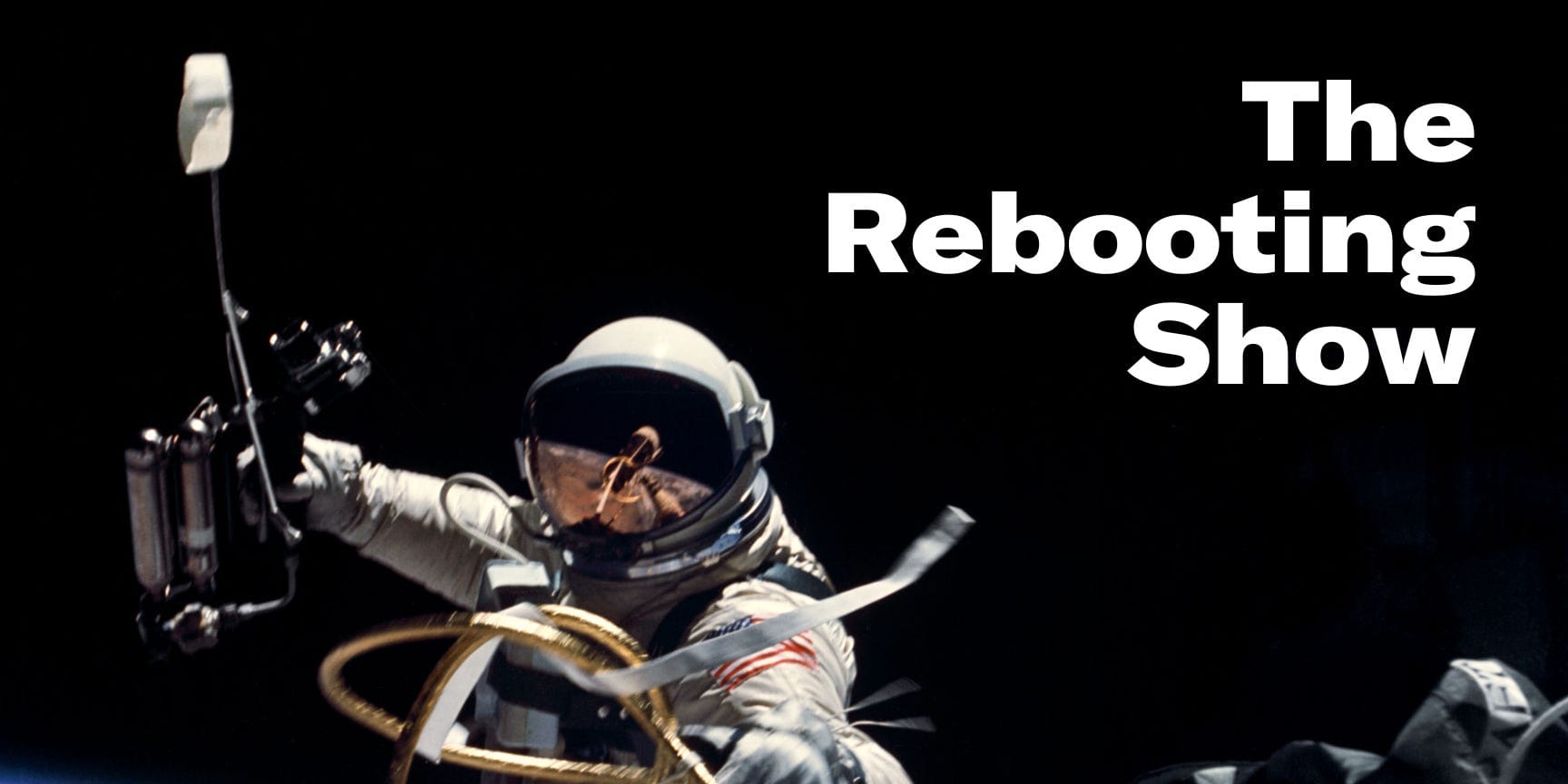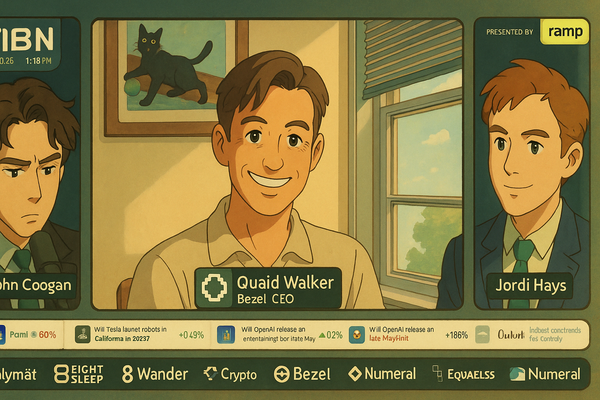Moving past ZIRP
Plus: The privacy boogeyman

We hosted 20 publishing executives last night at a private dinner in Tribeca, in partnership with Ex.co and Burt, under the Chatham House rule. One remark that I selfishly agree with (and will write about later) is the events bubble. One B2B media exec predicted a shift from larger events with thin value to smaller and more valuable gatherings. I couldn’t agree more, since I think most of the media business will move in this direction – a subject of a talk I’m giving this afternoon at a still-small event, The Self-Serve Summit powered by DanAds. Come by this afternoon.
Later on, Mike Shields of checks in on the privacy vibes of Advertising Week. First a message from The Rebooting supporter Ex.co.


Finding the right online video platform is a cornerstone to scaling your video revenue-driven business. Whether you’re looking to launch a video program from scratch or refine and scale an existing one, this guide will help you identify the foundational elements you need to supercharge revenue growth and ensure the success of your business in Q4 and beyond.
Moving past ZIRP

In retrospect, it was all a dream. Following the financial crisis, as governments embraced austerity measures rather than stimulate scarred economies, monetary policy did the heavy lifting with interest rates held abnormally low. That zero interest-rate policy gave us all subsidized taxi rides, 15-minute delivery of booze and all those scooters, not to mention reusable rockets, e-vehicles and AI finally delivering on its promise.
That time is over. The response to the pandemic made ZIRP untenable, and has given way to “higher-for-longer” as the watchword for a new period in which capital is more expensive – the cost of borrowing being zero can lead to some insane things like Hopin valued at $5.7 billion – and companies will, horror of horrors, be judged by their ability to create cash flow. Deploying capital just got riskier; hopefully, that will require VCs to focus more on capital allocation, less on national security policy and social commentary.
This will affect all sectors of the economy, particularly the frothy tech sector that’s continued to slim down, even the VCs, but presents unique challenges for publishing. Talking to most publishers over the ZIRP era, you’d never know they were running a race with the wind at the backs. The town halls at industry conferences were mostly gripe sessions about the predations of everyone from platforms to agencies to the ad tech middlemen.
Now, the picture is arguably more dire. Consider:
- Nearly all publishers I speak to had a terrible year – and the economy hasn’t tanked. There are secular shifts happening as publishers see budgets shift to retail media, streaming and away from news in particular.
- Traffic has already tanked, and AI search hasn’t fully arrived. The ComScore unique is dead. Publishers have seen their traffic whither as the social media firehose is fully off and Google is keeping more people on its properties. One longtime executive told me flatly they believe the open web will cease to exist as a viable strategy in a decade. What happened at StackOverflow is coming for all kinds of other content categories.
- Display is mostly a lost cause. I have spoken to a couple financial publishers who are sold out of display ad inventory. Needless to say, every rule has exceptions. In most areas, display advertising is no longer a viable option to be a majority of the business. This will become even more so the case with a combination of “signal loss” (more on that from Mike below) and shifts to video. I hear more about events and activations than I do about display.
The pressures of ZIRP will force publishers to take a more-with-less approach that focuses on smaller teams, smaller addressable markets and inevitably smaller ambitions. Forget home runs, take the double or even grinding out an infield single. Put this Vice corporate org chart in the ZIRP time capsule.
At a dinner for publishing executives last night – sign up here for invites to future dinners – I asked the 20 execs around the table to name something they are optimistic about and pessimistic. The most common optimistic response: niche media. The most common pessimistic response: social media/misinformation.
On a crossover episode of The Rebooting Show and People vs Algorithms, Alex Schleifer and I discuss the end of ZIRP and it will lead to cascading changes in tech and media. Listen to it on Apple, Spotify or wherever you get podcasts.

Discover the journey of National Public Media in our new case study, illustrating how your favorite radio and podcast provider conquered data disparities, and empowered their advertising operations team using Burt. With Burt, you can save time, reduce errors, and gain actionable insights for substantial ROI improvements.
Wrestling with privacy
Next in Media’s Mike Shields is hearing a lot about privacy but still not buying that it’s the existential threat many paint it to be.
One of the topics that inevitably comes up during Advertising Week sessions (or any ad industry panels really) is privacy.
It’s rarely because industry executives have this deep concern about data control as a human right. Most insiders don’t actually want to talk about privacy and regulation with any real specificity, probably because they’ve been scared off by their lawyers, or maybe because the subject isn’t exactly a fun one where there are augmented reality executions to gawk over.
It’s still hard to tell just how worried the ad industry should be. Like any doomsday-driven trend (viewability, ad fraud) the loudest voices are either angry advocacy groups, or more often, companies with a vested interest (i.e. they sell something that promises to fix the big privacy problem at hand).
The third-party cookie’s elimination feature prominently in public conversations. In private, many executives react with something akin to a traumatized shrug. Traffic has declined significantly for most already, with social divorcing news content and Google sending out less traffic. The cookie is just added to the pile. Besides, as one ad tech company CEO noted, the death of the cookie, promised for four years and running now, is just the latest “existential” crisis to face publishers. Somehow the industry is still standing.
The consensus is that using data for ad targeting is going to be harder and more expensive. Regulations nearly always benefit incumbents, which could explain wythe growing number of privacy laws has not had an impact on the ad-fueled tech giants’ stock prices. The analysts aren’t clamoring for answers about the many privacy-focused US state laws. There is little reason to believe that a national privacy law will be passed.
Jesse Redniss, who runs privacy startup Qonsent, doesn’t think the industry is ready for the impact of “signal loss,” since it was in large part constructed around the notion it could find only dog owners for dog-food ads. It’s not like publishers can fall back on selling webpage ads like magazines.
“When I started the company, I was coming from big corporation, which was always trying to find loopholes,” he said. “What is the gray area in privacy law so we can continue to operate our business unencumbered? It was all about interpretation until we got fined.”
That’s why efforts to replace the cookie, whether hashed email addresses or fingerprinting, are themselves hardly a big privacy improvement. One ad tech CEO said these hacks would lead to lots of identity fraud. Hardly protecting the consumer from the ravages of cookie-based retargeting.
“Now we’ve gotten into a world, where we have these band aids on the technical side, those don’t serve consumer interests. They are piping moves, so you don’t have to deal with things. Lot of people say ‘privacy preserving’ but the moves they make don’t meet consumer expectations.”
Thanks for reading. Send me a note with feedback by hitting reply.



